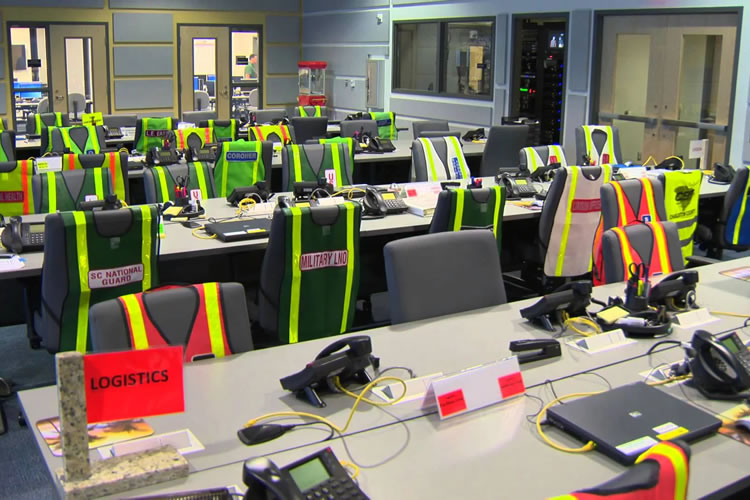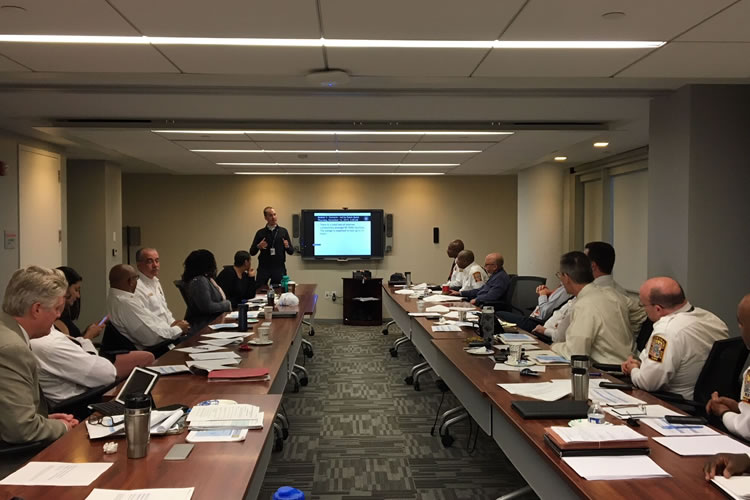Programs
CHHS provides tailored and comprehensive consulting services in the fields of emergency management and homeland security to governmental and institutional organizations – currently serving over 80 clients worldwide.
In the Community Resilience Initiatives (CRI) program, we guide and supports communities in building and expanding resilience to challenges that threaten to undermine their safety priorities. We accomplish this by collaborating with stakeholders across sectors and integrating local priorities and infrastructure assets into coordinated and comprehensive action protocols.
COOP is a comprehensive planning effort to ensure that the performance of an organization’s essential operational functions will seamlessly continue in response to adverse conditions, such as utility failures, severe weather or terrorism. CHHS, as an industry-leading expert in this field, will provide the expertise and resources necessary to ensure that an organization’s COOP program is robust, responsive, intuitive, customized, and fully compliant with federal and state standards.
Cybersecurity is not just about technology. Organizations must also consider numerous laws, regulations, and policies if they want to implement effective cybersecurity strategies. CHHS helps clients navigate the complex cybersecurity landscape through education, planning, training and exercises.
CHHS is equipped to provide government and institutional clients with comprehensive support at every phase of the emergency management programmatic cycle: planning, prevention, mitigation, response and recovery.
HSEEP-certified CHHS professionals provide effective and customized training programs, and exercise development, facilitation, and evaluation for clients’ plans, policies, and programs. This includes seminars, workshops, tabletop exercises, drills, functional exercises, and full-scale exercises.
Pandemic flu. Resource management. Medical surge. Contaminated water. Emerging diseases. Opioids. The role of public health is evolving, and CHHS is here to provide expertise to those responding to health threats, whether at the local, state, or regional level, in a public role or a private role. From making legal and policy choices, to providing planning expertise in the field or office, to testing response plans, to facing novel health questions, CHHS is helping redefine public health emergency response.
CHHS’s Public Safety Technology Program helps response organizations get the most from the technology solutions they have in place, plan for future investments, and drive innovation. CHHS works directly with clients to tackle the challenges of integrating new systems, solutions, and tools into existing operations through strategic planning, targeted trainings, and comprehensive exercises.
Recovery is more than just rebuilding in the aftermath of a disaster; it’s about bringing a community together to ensure restoration activities and mitigation measures create a unity of effort. Recent events highlight the importance of focusing on recovery at every stage in the preparedness cycle, not just waiting for when a disaster will strike.
Key Products and Services
CHHS brings a wealth of experience to our key products and services, but we are also ready to apply novel problem-solving strategies to unique planning, training, and response issues.
Continuity of Operations (COOP) and Continuity of Government (COG) Plans
A COOP/COG plan ensures that organizations are able to continue the performance of essential functions under a broad range of circumstances.
Crisis Management Plans
A Crisis Management Plan is the communications and decision-making component of an overall Business Continuity Plan (BCP). A thorough Crisis Management Plan facilitates rapid communication to ensure overall safety to both internal and external stakeholders.
Cyber Incident Response Plans
A Cyber Incident Response Plan is a plan that goes beyond the technical response to a cyber incident and outlines all roles and responsibilities within an entire organization during and after a cyber event. The plan includes strategic, legal, regulatory, and policy considerations, as well as coordination and communication procedures.
Emergency Operations Plans
An emergency operations plan (EOP) is a document which outlines how an organization and/or facility will respond to an emergency. The EOP sets guidelines to manage a disaster in an effective, efficient, and timely manner.
Gap Analyses
A gap analysis is designed is to improve operational readiness and reduce disaster impacts by identifying and reducing or eliminating shortfalls that exist between estimated requirements, standards, and performance measures and the actual response and short-term recovery capabilities.
Hazard Mitigation Plans
Hazard mitigation planning is the process used by organizations to understand risks from natural and man-made hazards and develop long-term strategies to reduce the impacts of disasters on people, property, and the environment.
Hospital Surge Planning
Medical surge capacity refers to the ability to evaluate and care for a markedly increased volume of patients—one that challenges or exceeds normal operating capacity.
Interoperable Communications
Interoperable communications refers to the ability of emergency responders and government personnel to communicate and share voice and data information seamlessly.
Legal Handbooks
Emergency-centric legal handbooks are effective resources which cover topics such as executive emergency powers, governmental liability and immunity, and subject areas like public health and environmental safety.
Resource Management Plans
A resource management plan addresses the type, quantity and location of resources that an agency would require to execute an effective emergency response. It also includes gaps, capabilities, and cost and procurement information.
Risk Assessments
A risk assessment is a process to identify potential hazards and analyze what could happen if a hazard occurs.
Strategic Planning
Strategic planning is an organization’s process of defining its emergency management strategy, or direction, and making decisions on allocating its resources to pursue this strategy.
Training and Exercise Development, Facilitation and Evaluation
This service includes the successful planning, delivery and evaluation of all Homeland Security Exercise and Evaluation Program (HSEEP) exercises: seminar, workshop, tabletop exercise, drill, functional exercise and full-scale exercise.








